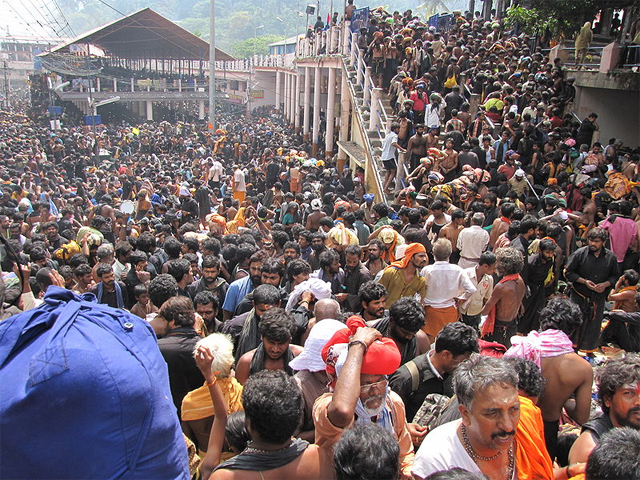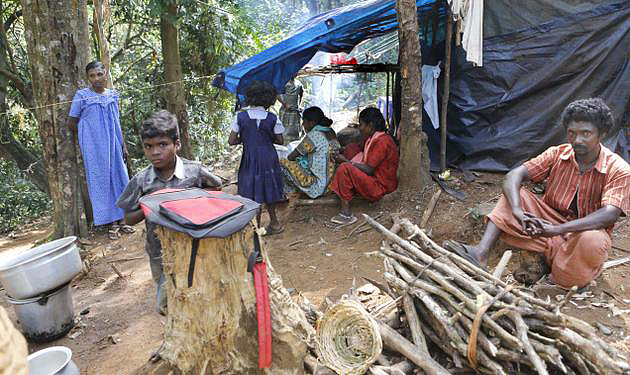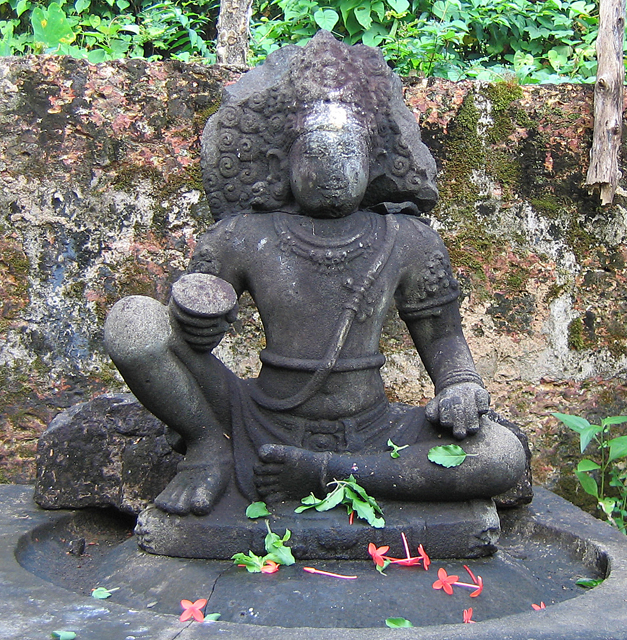Lord Ayyappan, the popular Hindu deity, is a confirmed celibate. As a result, until a few weeks ago, women of menstruating age, 10 – 50, have been rigidly excluded from participating in the massive pilgrimages to his temple complex at Sabarimala, in southern Kerala. But women devotees of the god, many from southern India, began protesting the discrimination and trying to slip past the guards along the roadways up to the hilltop temple. In January 2018, temple authorities announced that guards would begin checking identity cards of all pilgrims and women of child-bearing age would be rigidly excluded.

However, on September 28, the Supreme Court of India, in a 4 to 1 ruling, banned the practice of gender discrimination at the famed temple. The majority ruled that prohibiting women from entering the temple complex, even among the vast crowds of pilgrims, amounts to gender discrimination. It is a practice that violates Indian laws securing the rights of women. The one woman judge on the court, Justice Indu Malhotra, issued the sole dissenting verdict, arguing that religious customs should not be violated in order to support secular goals.
The court order has provoked an enormous outcry in India where the temple at Sabarimala hosts millions of pilgrims. Controversies are raging at this time, the beginning of the annual pilgrimage season, and the Indian media, and to some extent other international news sources, have been covering the protests, riots, arrests, and chaos. The interest for this website is the Malapandaram people, who live in a number of colonies along the major roads up to Sabarimala. How are they reacting to the brouhaha?

Fortunately, The Indian Express sent a reporter last week to investigate the Malapandaram attitudes toward the crisis. To judge by the people quoted, they seem to be as divided as the rest of India over the issue of ending a centuries-old discriminatory tradition. The reporter, Vishnu Varma, talked with some Malapandaram living in Attathodu, located on the major paved road up to the temple from the coastal cities of Kerala.
He speaks with the head of the colony, Ayyappan Perumal, who expresses his disapproval about the change in the law. “If young women climb the hill, everything will be destroyed,” he tells the reporter. He says that he has never seen a woman between 10 and 50 enter the temple, and no woman will go there from Attathodu. The reporter also speaks with Ayyappan Perumal’s older sister, Chellamma, 82, who has similar views as her brother. She tells Mr. Varma how she was once covered with rashes and after she prayed to Lord Ayyappan, her rashes were all cured. “It’s all because of the Lord,” she says.
But not everyone in Attathodu agrees with the popular view. A 32-year old woman who speaks on the condition of anonymity says that all the protesting about women of child bearing age represents a big uproar about nothing. She blames the protests on upper caste people. She says that no one organizing the protests contacted the Dalits, the so-called untouchable people such as herself and the other Malapandaram.

Her words are powerful. “If you ask me, I’m all for women entering Sabarimala. Why shouldn’t they?” She goes on to state the obvious—that Lord Ayyappan will survive if women between 10 and 50 visit the temple. Everyone must abide by the constitution, she concludes. But she says she can’t express such views in public. She replies, if asked, that she is neither against nor is she for the entry of women. That way she stays safe.
Her father, a retired mason, compares the ongoing protests to the agitation that occurred in the 1930s when the law was changed allowing all Dalits to have access to the temple. But time has passed and that issue has faded. The daughter adds that some of them are rationalists, such as she is. The leaders of the protest movement feel they can control the ways people think but they cannot. “We cannot be swayed like the others in the colony,” she concludes.